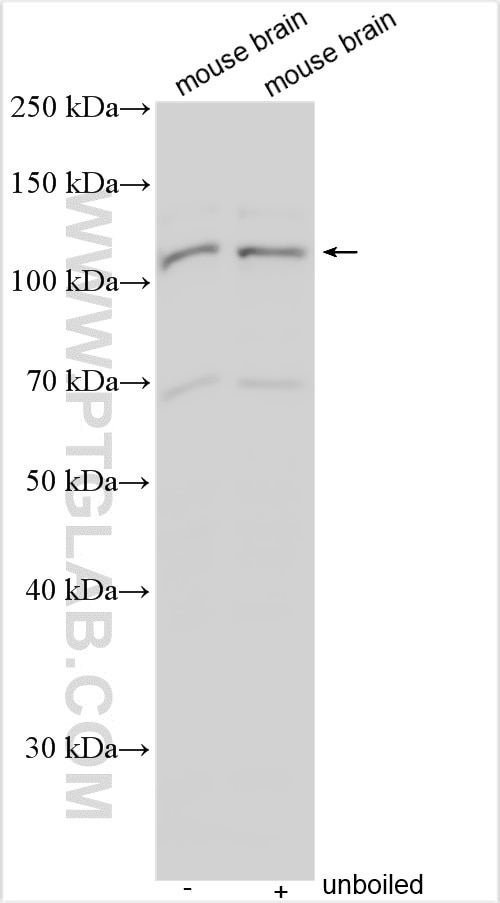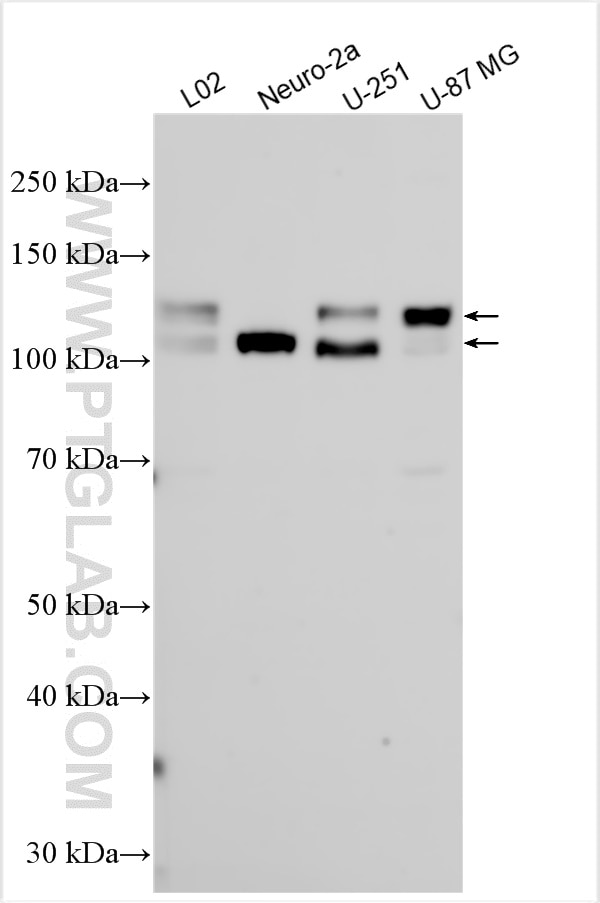Tested Applications
| Positive WB detected in | mouse brain tissue, L02 cells, Neuro-2a cells, U-251 cells, U-87 MG cells, unboiled mouse brain |
Recommended dilution
| Application | Dilution |
|---|---|
| Western Blot (WB) | WB : 1:500-1:2000 |
| It is recommended that this reagent should be titrated in each testing system to obtain optimal results. | |
| Sample-dependent, Check data in validation data gallery. | |
Product Information
14000-1-AP targets PCDH8 in WB, ELISA applications and shows reactivity with human, mouse samples.
| Tested Reactivity | human, mouse |
| Host / Isotype | Rabbit / IgG |
| Class | Polyclonal |
| Type | Antibody |
| Immunogen | PCDH8 fusion protein Ag5090 Predict reactive species |
| Full Name | protocadherin 8 |
| Calculated Molecular Weight | 1070 aa, 113 kDa |
| Observed Molecular Weight | 104 kDa,113 kDa |
| GenBank Accession Number | BC036025 |
| Gene Symbol | PCDH8 |
| Gene ID (NCBI) | 5100 |
| RRID | AB_3669175 |
| Conjugate | Unconjugated |
| Form | Liquid |
| Purification Method | Antigen affinity purification |
| UNIPROT ID | O95206 |
| Storage Buffer | PBS with 0.02% sodium azide and 50% glycerol , pH 7.3 |
| Storage Conditions | Store at -20°C. Stable for one year after shipment. Aliquoting is unnecessary for -20oC storage. 20ul sizes contain 0.1% BSA. |
Background Information
Protocadherin-8 (PCDH8) is a member of the protocadherin family that belongs to the cadherin superfamily. Protocadherins are calcium-dependent adhesion proteins and have been implicated in neural cell-cell interactions. They are abundantly expressed in the central nervous system during embryonic development and in adulthood (PMID: 24214103). PCDH8 is a tumor suppressor involved in tumorigenesis.
Protocols
| Product Specific Protocols | |
|---|---|
| WB protocol for PCDH8 antibody 14000-1-AP | Download protocol |
| Standard Protocols | |
|---|---|
| Click here to view our Standard Protocols |





